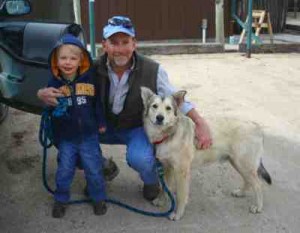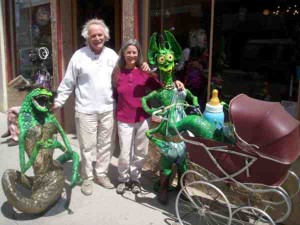Brief by Allen Best
Environment – June 2008 – Colorado Central Magazine
People want to move to rural areas, because the air quality is good. But a tide of news stories suggests that air quality, because of natural gas wells and gold mines, can be bad even in rural areas.
The Jackson Hole News & Guide reports that an air quality warning was issued in Sublette County, about 80 miles south of Jackson, site of the Jonah and Pinedale Anticline oil and natural gas fields. Children, the elderly and people with respiratory problems were advised to stay indoors because of the ozone pollution.
Ozone pollution has also been a problem in the hot-spots for natural gas drilling in Colorado. One of those gas fields is located west of Glenwood Springs. The Rocky Mountain News notes that those high ozone levels are partly to blame for high ozone levels in Denver. And between the Glenwood and Denver are many of Colorado’s ski areas.
In Idaho, the issue is mercury. Ketchum’s Idaho Mountain Express reports there’s mercury contamination of a local waterway, Silver Creek, which may have come from a mine several hundred miles south in Nevada. The Jerritt Canyon Mine operated for 20 years, and during that time mercury emissions exceeded 10,000 pounds per year, according to the Idaho Conservation League, as compared to 125 pounds of mercury per year from an average-sized coal mine.
Unlike other gold mines, the Jerritt Canyon Mine used ore roasters to heat gold-bearing ore to several thousand degrees. In the process, mercury, which occurs naturally in the rock, was converted from its normal liquid state into vapor, and became airborne. The prevailing winds in that area carried the mercury vapor northward into Idaho.
Due to EPA action, the Jerritt Canyon Mine suspended operations in late March, but it’s feared that other Nevada mines near the Idaho border may pose similar problems.


